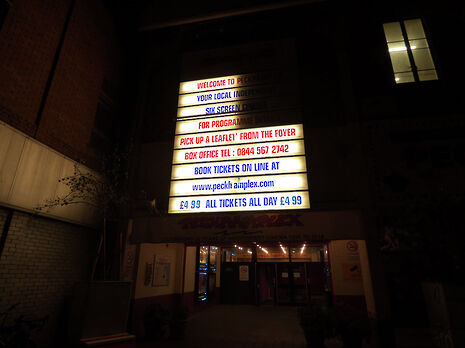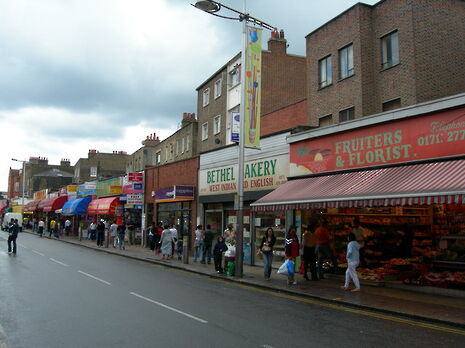Gentrification presents a massive threat to the future of our cities
Affordable services, like Peckhamplex in South London, are quickly becoming the exception, not the norm, says columnist Lauren Carneiro

If you walk along Rye Lane in Peckham, with its countless Afro-Caribbean food stores and nail shops, you might just believe that there remains a place in London which has yet to be touched by the scourge of gentrification. But as soon as you walk down any of its side roads, the façade is broken. The likes of Honest Burger and Foxtons are ever more prominent here, and across the city.
The last couple of weeks have now seen reignited worries over the future of Peckhamplex, one of the few places in London where you can watch a movie without breaking the bank. Its floors might be a bit sticky and the toilet doors don’t always lock, but it is sorely needed when the main alternative in the area is a Picturehouse – the hummus of cinema chains. Just like parents always talk about how much cheaper everything used to be, in a few years you’ll hear me reminiscing about the time I used to go to the cinema for a fiver.
“Whilst statistics might show that gentrification improves schools and reduces crime rates, its human cost is unmeasurable.”
Yet the situation is about more than saving money on a cinema ticket. In 2011, work began on a new development to replace the famous Heygate Estate down the road in Southwark. Residents were evicted from their houses and offered only a fraction of what their homes were worth, with only one in five relocated to new houses within the same postcode. This turns people’s lives upside down, as their communities are uprooted, residents are forced to move away from their families, and children are made to move school.
At the time of eviction, residents were assured that new affordable homes would be part of the development scheme, but it seems that the council’s idea of ‘affordable’ seems to be upwards of half a million pounds, and now it has emerged that all the properties sold so far have gone to overseas investors. Of the 500 social housing units promised by the council, only 82 have materialised for those who had been evicted in the first place. This is effectively the social cleansing of central London.

Whilst statistics might show that gentrification improves schools and reduces crime rates, its human cost is immeasurable. As investors move in, long-term residents who have spent years building up their areas are forced out. Places once buzzing with culture and diversity are replaced with naff delis and pricey pubs which only serve £5-a-pint craft beers. Independent cinemas which serve the local community are at risk of being torn down for more luxury housing which will most probably be sold to foreign buyers.
It's not just London. This is a nationwide issue but it particularly affects the south-east. We often talk about the north-south divide in Britain, however, if gentrification continues the way it’s going, without more provisions being made for existing residents, then a stark inner-outer city divide is the biggest threat to our once thriving communities.
A similar phenomenon has been occurring in Cambridge for years now. It can be relatively easy to keep things cheap as students, but for many people living in Cambridge, the city is becoming unbearably expensive. Just a couple of weeks ago, there was a march through the city centre about the lack of affordable housing.
Although Cambridge is leading the UK in terms of economic growth, fuelled by technology and research, you only have to walk out of the Cambridge college bubble to see what a major problem homelessness is. House prices in Cambridge are rivalling those in London, where student accommodation as high as £200 a week is not uncommon. Luckily, Cambridge colleges guarantee accommodation for nearly all undergraduates at much lower rates. However, for the majority of people living in Cambridge, including many Anglia Ruskin students, they do not have this luxury of subsidised rents. This means longer commutes as they are forced to live further out in the outskirts of the city.
From Cambridge to London, Bristol and Edinburgh, gentrification is exerting a horrifying toll on our cities. The poor are being turfed out in order to cleanse once vibrant areas to the tastes of the rich
 News / SU stops offering student discounts8 January 2026
News / SU stops offering student discounts8 January 2026 Comment / Plastic pubs: the problem with Cambridge alehouses 5 January 2026
Comment / Plastic pubs: the problem with Cambridge alehouses 5 January 2026 Science / New year, new room, new you8 January 2026
Science / New year, new room, new you8 January 2026 Theatre / Camdram publicity needs aquickcamfab11 January 2026
Theatre / Camdram publicity needs aquickcamfab11 January 2026 Comment / What happened to men at Cambridge?31 December 2025
Comment / What happened to men at Cambridge?31 December 2025








